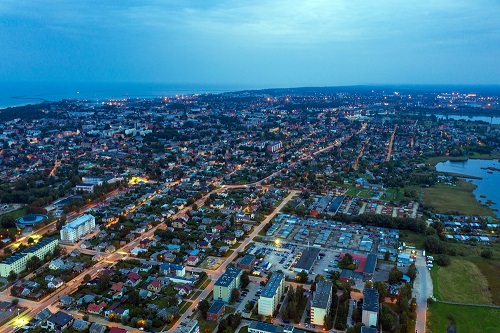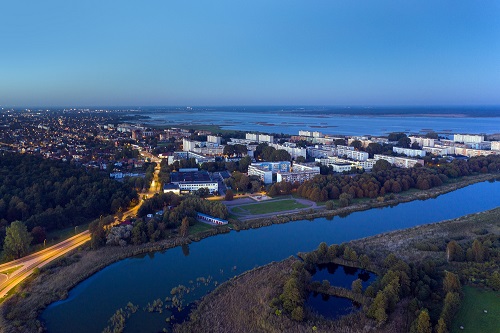As an expat in Latvia, you will be entitled to treatment for cancer under the national healthcare scheme, as long as you are registered with it. Many expats, however, choose to take out private health insurance to cover their time in the country. This article takes a look at oncological care in both Latvia and the UK.
Oncological treatment in the UK
If you are a British resident who is returning home for oncological care, you will qualify for treatment under the NHS. If you are an overseas expat and are living in the UK, you will need to have resident status in order to qualify.
If you are not coming from an EU-member state, and you are planning to remain in the UK for more than six months but not to move there permanently, you may be required to pay a surcharge. This is called the Immigration Health Surcharge (IHS) and is payable when you apply for your visa.
The standard surcharge fee is currently:
• £300 per year per person for students and each of their dependants
• £400 per year per person for everyone else
The full amount will be paid upfront for the duration of your visa.
There are circumstances in which this surcharge is not applicable, such as if you are the dependant of a member of the forces who is not subject to immigration control.
If you are diagnosed with cancer and are eligible for treatment, you will be fast-tracked by the NHS to your local oncology department, and a course of treatment will be outlined for you by the oncology team. This may consist of surgery, radiotherapy or chemotherapy, and possibly immunotherapy, depending on the type of cancer you have.

You will not need to pay out-of-pocket for any treatment that you receive, including if you stay in hospital. Oncological treatment under the NHS involves follow-up care. You will have check-ups with your consultant on a regular basis (e.g. every three months, every six months, and then annually) after your treatment has finished.
Taking out private health insurance will not make much difference to the quality of your cancer treatment in the UK, as private and public patients receive the same levels of medical care. Private insurance will also not necessarily speed up your access to treatment, since the NHS tends to place a high priority on cancer patients. However, private cover will give you more comfortable facilities, such as a private room in a hospital.
Oncological treatment in Latvia
Latvia has universal healthcare, funded by government taxation, but it is not ranked highly in terms of healthcare standards. If you are a citizen of the UK and are living in Latvia, or if you move there permanently before 31 December 2020, you will have life-long healthcare rights in Latvia, provided you remain resident. Note that you may need to apply for an S1 certificate.
Cancer is one of the leading causes of death in Latvia (it was the second most common cause of death in 2014, with five of the ten main causes being due to different forms of the illness), and patient outcomes are not among the best in Europe. In fact, the WHO reports that both screening rates and net survival for breast and cervical cancer are among the lowest in the EU. Lung cancer continues to be the most prevalent form of cancer, which relates to the high rates of nicotine use in Latvia.
Survival after a diagnosis from breast cancer, cervical cancer and colon cancer has increased slightly in Latvia over the past ten years, but it still does not compare well to in some of the country’s European neighbours. The WHO believes that this relatively low survival rate from treatable cancers is partly due to low screening rates, which mean that a higher percentage of cancer patients are diagnosed at a later stage.
The WHO reports that in 2015, for example, only one quarter of Latvian women in the target group (20 to 69 years) were screened for cervical cancer during the previous three years, and only one-third of women in the target group (50 to 69 years) had mammography screening during the previous two years.
The Latvian government has increased its efforts to improve oncological care in the last decade. National cancer control strategies were brought in during 2009. Cancer care delivery has been centralised, and specialised institutions have been overhauled in order to improve the quality and effectiveness of care delivery. A national plan was adopted in 2017, aiming to improve cancer care in Latvia: the ‘Green Corridor’ pathway. This prioritises early diagnosis of cancer and aims to reduce risk factors as well as improve access to treatment, plus rehabilitation and palliative care.

Under the new scheme, GPs must refer patients with suspicious symptoms for examination within 10 working days. If a cancer diagnosis is confirmed, your GP must request an appointment at a specialised cancer centre for a specialist consultation and secondary diagnostic tests within another 10 working days. A first treatment decision must now be taken within one month of the first specialist consultation.
In general, cancer care, from screening to early diagnosis to treatment, has been improving in Latvia in recent years. If, like many expats, you opt for private health insurance, you should find that your waiting times are substantially reduced, and you will have access to some top of the range treatment.
Oncological tourism is an increasing part of medical tourism to Latvia. Prostate cancer is the most common form of the disease treated in the private sector in Latvia, often with cyberknife radiosurgery. Some clinics also specialise in Virotherapy, a melanoma (skin cancer) option that is not said to cause the side effects that patients get from chemo. This is a form of alternative treatment that has been embraced in Latvia but which is regarded as dubious in other countries. Make sure you do your research carefully before signing up.
Overall, if you want to use the public sector, you will find a more effective level of cancer care in the UK than in Latvia. However, private treatment in both countries is of a high standard, and the cost of your treatment will be lower in Latvia. Wherever you are, make sure you check that your insurance policy will fully cover you, if this will be your method of payment.

